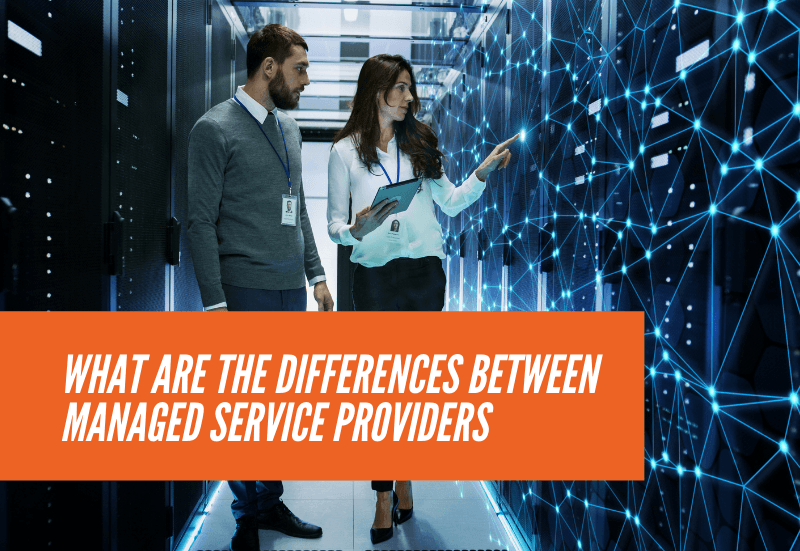In today’s interview, we discuss some key facts to learn about when evaluating an MSP and what to look for in an IT service provider.
What Should You Look for in an MSP?
While the price may be an important point in your search, just like many other things in life, you often get what you pay for. When you’re conducting your search for an MSP, here are some things, beyond base cost, to look into.
Long-Term Contracts:
Many companies will offer you a better price if you sign a long-term contract. This is probably not your best option. Aside from the fact that technology is ever-evolving, and locking into today’s tech could put you at a real disadvantage in the future, your business is also evolving and needs may change. Be sure your contract is flexible enough to allow for these things, or better yet, don’t sign a long-term contract at all. A month-to-month or shorter contract can allow you increased flexibility to suit your business's needs.
Hourly Caps:
An hourly cap is an allotment of hours of work that are included with your contract. There are 2 things to be aware of. First, you need to know exactly how many hours your business needs. Second, you have to prepare for issues accordingly. Better yet, find a contract without hourly caps. Your MSP should want your systems to run as efficiently and safely as possible. If you’re both worried about going over your hours, then the end result could be an inefficient system.
Project Charges:
Basic key points should be included in a contract, this usually includes maintenance and monitoring. But read your contract carefully, whatever is not covered may be billed as a project charge. That could range from upgrading software to installing a new computer. A couple of Project Charges and suddenly that low monthly cost isn’t such a good deal anymore.
Availability:
When evaluating MSPs, be sure to look at availability and the rates for out-of-scope hours. If your business truly operates 9-5, then there can be significant cost savings in a contract that limits your accessibilities to those hours. But if you find that your business needs help during off hours then pursuing a 24/7 option may be better for you.

Help Desk:
Ask about their Help Desk services and the location. If they are outsourcing overseas, chances are you’ll be dealing with techs who are unfamiliar with the specifics of your business. There are also language barriers to consider. These types of call centers are rarely familiar with your specific setup and chances are, that’s not the type of services you’re willing to pay for.
Licensing:
Microsoft and Adobe are just a few of the common licensing needs for businesses. Is the MSP in charge of these licensing agreements, are they responsible for monitoring and paying them? At Virtuworks, we believe that managing our client’s licensing is another aspect of MSP service. It makes sense to keep all those billings together in one monthly payment. It also makes sense to keep those billings up to date, eliminate services when needed. Be sure to evaluate the relationship between the licensing software and your MSP. They should be getting the best price possible for these services and passing those on.
Self-Help Options:
Does the MSP provide you with self-help options? Not every forgotten password or update requires the Help Desk. Finding a partner that allows you to simply resolve common issues can help things along, especially if they lack availability.
Reporting:
Receiving information from your MSP is an important aspect of the relationship. How do they report this information, like user lists, device numbers, or reporting compliance issues? At VirtuWorks we believe in complete transparency. This type of over-communication can avoid overpayments, security issues, and more.
Additional Service Offerings to Consider
It makes sense to add some services to your MSP. Items dealing with internet, connectivity, or communication can all fall under the responsibility of your MSP provider. Some additional offerings to investigate include:
- Phones – VoIP services that easily integrate into your other systems can be a real asset
- Security – More than cybersecurity, physical security, including cameras, access control, etc. are also a consideration
When investigating these services, it makes sense to find out exactly how they provide them. Are they licensed providers of certain materials, or do they order them off of Amazon? Do they have a relationship with the providers, so when you encounter trouble, they can resolve the issues for you, or do they just re-sell things. If they’re simply buying and re-selling products, that could impact the warranty on those devices.
You should also see if those services will be provided in-house, or if they will be third-party or white-labeled. If you’re paying for these services through your MSP, you should expect the same quality of setup and response as you receive from your other services through them.
Cost is important, but the scope of services, available options, and customer service level are important things to consider. Also, when looking at the more economical options, you really have to investigate even the simple things like insurance. Do they have cyber-insurance, regular insurance, if their tech comes out to work on your offices, are they insured. While these things may seem minor, it’s a hallmark of a good business and just something else to consider when choosing an MSP.
Why Consider VirtuWorks?
Shopping around for an MSP is not an easy task. Narrowing down your options based on the list above is a good place to start. While you’re at it, consider VirtuWorks. We are a Microsoft Gold Partner and Tier 1 CSP, we offer a variety of contracts, even month-to-month, and our staff is 100% US-based. Want to learn more? Check out our website and schedule a callback.



